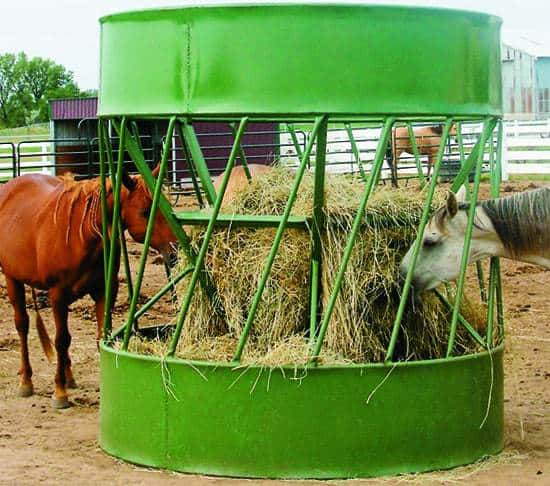
Prevention and Management of EMS in Horses
Taking preventative measures though diet and exercise are the best defenses against EMS development.

Taking preventative measures though diet and exercise are the best defenses against EMS development.

Hay replacers can be extremely useful, but they come with some guidelines to keep horses happy and healthy.

Of the 1,473 voters, 684 (46%) said that they feed their horses hay on the ground or do not use a hay feeder.

Feeding hay before grains appeared to reduce the intensity of cribbing episodes in a recent study.
The help horse owners more precisely plan hay purchases and evaluate horses’ body weight.
Sessions on hay production and equine parasite control recommendations will be offered.

Feed choices are good places to start when trimming expenses without sacrificing the horses’ care quality.

Horse owners can take simple steps to help keep their animals’ GI systems functioning optimally.
Discussion topics will include techniques for evaluating hay, forage alternative options, and more.

Learn about the potential benefits of soaking your horse’s hay, methods for soaking, and what to do with the remaining liquid (hint: don’t use it to water plants) in this information packed fact sheet.

This year?s conference focused on hay production for the horse and other high-quality markets.
Due to the 2012 drought, some owners are having difficulties finding feed sources for their horses.
The fifth annual “Haydrive” campaign will help fund hay costs for the TRF’s 950 retired racehorses.

Ergovaline levels over 200 ppb (parts per billion) in mature hay can cause fescue toxicity in pregnant mares.

Soaking hay can cause protein and mineral loss, depending on the time submerged and water temperature.

Researchers found that high-energy forage diets provided adequate nutrition for young horses in training.
Stay on top of the most recent Horse Health news with
"*" indicates required fields